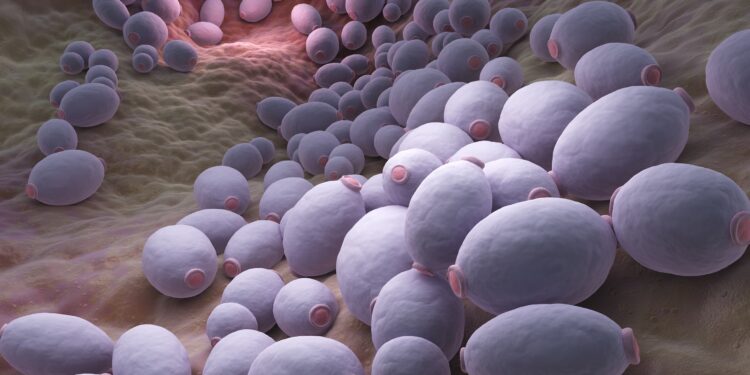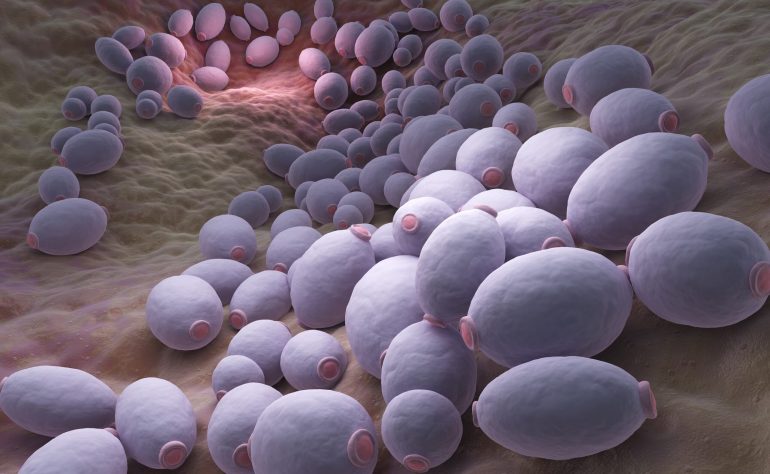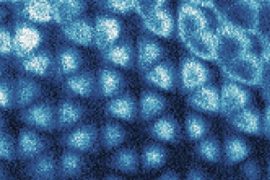
What role do the fungi that live in the intestines play in health?
In recent years, intestinal bacteria have become an important research area in the health sector. It is becoming increasingly clear that the gut microbiome plays a major role in our overall health. A US research team has now shown that not only intestinal bacteria, but also the fungi that live in the gut are important for health and may also be involved in disease processes.
Researchers from the University of Utah Health as part of a recent study examined the effects of intestinal fungi on health. While fungi thrive in a healthy gut, they can damage the intestines and contribute to the development of inflammatory bowel disease when they are out of the intestinal flora. The research results were recently published in the journal “Nature” Presents.
Intestinal fungi have so far been little studied
“There has been only insufficient research on intestinal fungi so far, partly because they outnumber bacteria,” explains the pathology professor. June Round. Has a comprehensive analysis of the latest equipment and technologies intestinal fungus According to the head of research only recently became possible. This work adds an important piece to the big picture.
Intestinal fungus is monitored by the immune system
The team used mice to show how the immune system keeps fungus in the intestines under control. If they become pathogenic or if they multiply excessively, immune cells begin to attack the fungus. If this system is unbalanced, it can lead to intestinal diseases.
Crohn’s disease test provided important clue
Round’s team became interested in this branch of research after the discovery of antibodies against the fungus in a common medical test used to diagnose chronic bowel disease, Crohn’s disease. What these antibodies had to do with the disease was still unclear at the time.
Candida albicans triggers immune response
The researchers detected the immune response in human samples as well as in mouse models. The working group exposed the yeast Candida albicans as the main trigger. Yeast is the most important type of fungus in the human gut.
Further studies showed that the immune response was primarily directed against the so-called hyphae of the fungus. These are thread-like cells that can absorb nutrients and water. With the help of hyphae, the fungus can penetrate deep into the tissue. In this way, the yeast Candida albicans can stick to surfaces and enter them.
Candida albicans is not harmful when balanced
The researchers also found that the fungus caused no harm in mice with a balanced gut microbiome. The mice over-populated with the yeast developed intestinal damage known from inflammatory bowel disease. However, the mice, which developed a pronounced immune response against the harmful, hyphal form of the fungus, were largely able to protect themselves from the effects.
New approach to the treatment of chronic intestinal diseases
“Our goal is to exploit the interactions between microbes and the host’s immune system to make microbial products useful for treatment,” explains Round. The research team believes that it is likely that inflammatory bowel disease can be treated with targeted immune system support.
Preliminary tests on mice have already shown that mice with chronic bowel disease are less likely to develop such disease if they are given an active ingredient to boost an immune response.
Intestinal fungi in symbiosis with immune cells
But research also suggests that healthy levels of Candida populations may be beneficial to health. Because fungi are tolerated in their non-pathogenic form. “The immune system forces Candida into its least pathogenic form,” says lead author of the study, Kayla Ost. This suggests that the communication between the host and the microbe may also be “friendly”. Researchers suspect that this benefits both sides. (VB)
Author and source information
This text complies with the requirements of specialist medical literature, medical guidelines and current studies and has been checked by medical professionals.
Author:
Diploma-Editor (FH) Volker Blasek
hilarious:
- University of Utah Health: Fungi that live in the gut affect health and disease (veröffentlicht: 14.07.2021), healthcare.utah.edu
- Kyla S. Ost, Teresa R. O’Meara, W. Zack Stephens, et al.: Adaptive immunity induces mutualism among commensal eukaryotes; In: Nature, 2021, nature.com
Important Articles:
This article is for general guidance only and should not be used for self-diagnosis or self-treatment. He cannot take the place of visiting the doctor.

Web guru. Amateur thinker. Unapologetic problem solver. Zombie expert. Hipster-friendly travel geek. Social mediaholic.





